JGU FACES
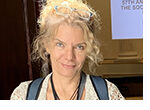
Research in peace
What Professor Olena Pchelintseva values most about Mainz is the quiet, peaceful sky. "After living with constant air raid sirens, you come to appreciate that kind of silence." The Ukrainian-Russian linguist is spending two years at Johannes Gutenberg University Mainz (JGU) through a fellowship from the Philipp Schwartz Initiative – an opportunity made possible and enriched by "wonderful colleagues."
 COMPUTER SCIENCE
COMPUTER SCIENCEAlgorithms, avocados, and adventures
The step abroad was a deliberate adventure for Professor Sebastian Erdweg. When planning his research sabbatical, the JGU computer scientist envisioned not just an academic collaboration, but also family life in an unfamiliar country. As a visiting professor, he eventually went to the Universidad de Chile – bringing home not only formative experiences but also a major third-party funded project.
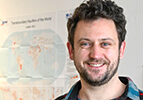 EARTH SYSTEM MODELING
EARTH SYSTEM MODELINGWater-related research of international relevance
Groundwater, a dynamic system involved in multiple interactions, is a global concern. Professor Robert Reinecke of Mainz University, through his digital models of global water resources, is making a significant impact on our understanding of this crucial resource. His contributions to the annual United Nations' State of Global Water Resources report, published by the World Meteorological Organization (WMO), are shaping the global discourse on water management.
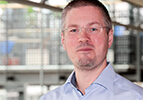 SUSTAINABLE CHEMISTRY
SUSTAINABLE CHEMISTRY"We need a thorough shake-up of our global energy industry"
Professor Carsten Streb and his team at the Department of Chemistry of Johannes Gutenberg University Mainz (JGU) have developed a molecule that is capable of storing solar energy and releasing it whenever required. Their pioneering work represents a possible solution to the worldwide energy crisis.
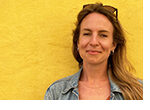 POLITICAL ANTHROPOLOGY
POLITICAL ANTHROPOLOGYDisciplined empathy as an important tool in highly political times
For over a decade, Franziska Fay conducted research on the Zanzibar Archipelago. There she worked with child protection organizations, children in primary and Koranic schools, was a guest lecturer at Zanzibar University, and advised international aid organizations. After completing degrees in Frankfurt and London, she was appointed Junior Professor of Political Anthropology at the Department of Anthropology and African Studies at Johannes Gutenberg University Mainz (JGU) in 2021.
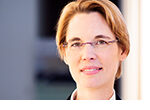 MOLECULAR CELL BIOLOGY
MOLECULAR CELL BIOLOGYThe search for causes of neurodegenerative diseases
In spring 2021, the Faculty of Biology at Johannes Gutenberg University Mainz (JGU) was lucky to acquire a specialist in the field of neurodegenerative disorders – Professor Dorothee Dormann. A cell biologist and biochemist by training, she is an expert in identifying the molecular processes that underlie conditions such as Alzheimer's disease and has already won several awards for her research.
 GUTENBERG ALUMNI
GUTENBERG ALUMNIThe never-ending story of equal rights
She was the first State Commissioner for Women in Rhineland-Palatinate and the first politician of the German Christian Democratic Union (CDU) to be appointed Federal Government Commissioner for Migration, Refugees, and Integration. She made important contributions as a Minister of State in the cabinet of German Chancellor Angela Merkel and in the Federal Foreign Office, acted as National Chairwoman of the Frauenunion, the CDU's women's organization, and today is President of the German Commission for UNESCO. From her years at Johannes Gutenberg University Mainz (JGU), where she started studying in 1968, she has taken with her important impulses for her later public offices and tasks.
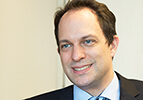 TURKIC STUDIES
TURKIC STUDIESTurkic Studies – a minor subject with major themes
The division of Turkic Studies at Johannes Gutenberg University Mainz (JGU) is in a period of transition. A second professor is currently being recruited, and new, independent degree courses will soon be launched. Professor Julian Rentzsch, who was appointed to Mainz University in 2017, is structuring and supervising this process.
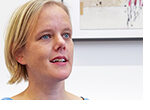 NEUROBIOLOGY
NEUROBIOLOGYHow flies and humans see the world
Professor Marion Silies joined the Faculty of Biology at Johannes Gutenberg University Mainz (JGU) in early 2019. Here she has been investigating the organization and function of circuits in the visual system of the fruit fly. Her work has already earned her numerous awards.
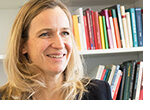 HUMAN GEOGRAPHY
HUMAN GEOGRAPHY"Research always involves a major biographical aspect"
Veronika Cummings was appointed Professor of Human Geography at Johannes Gutenberg University Mainz (JGU) in 2017. Her current research focuses on social, cultural, and political aspects of migration. In these fields she can also draw from the experiences and insights she collected during her time in Singapore and the Sultanate of Oman – and on her return to Germany.
